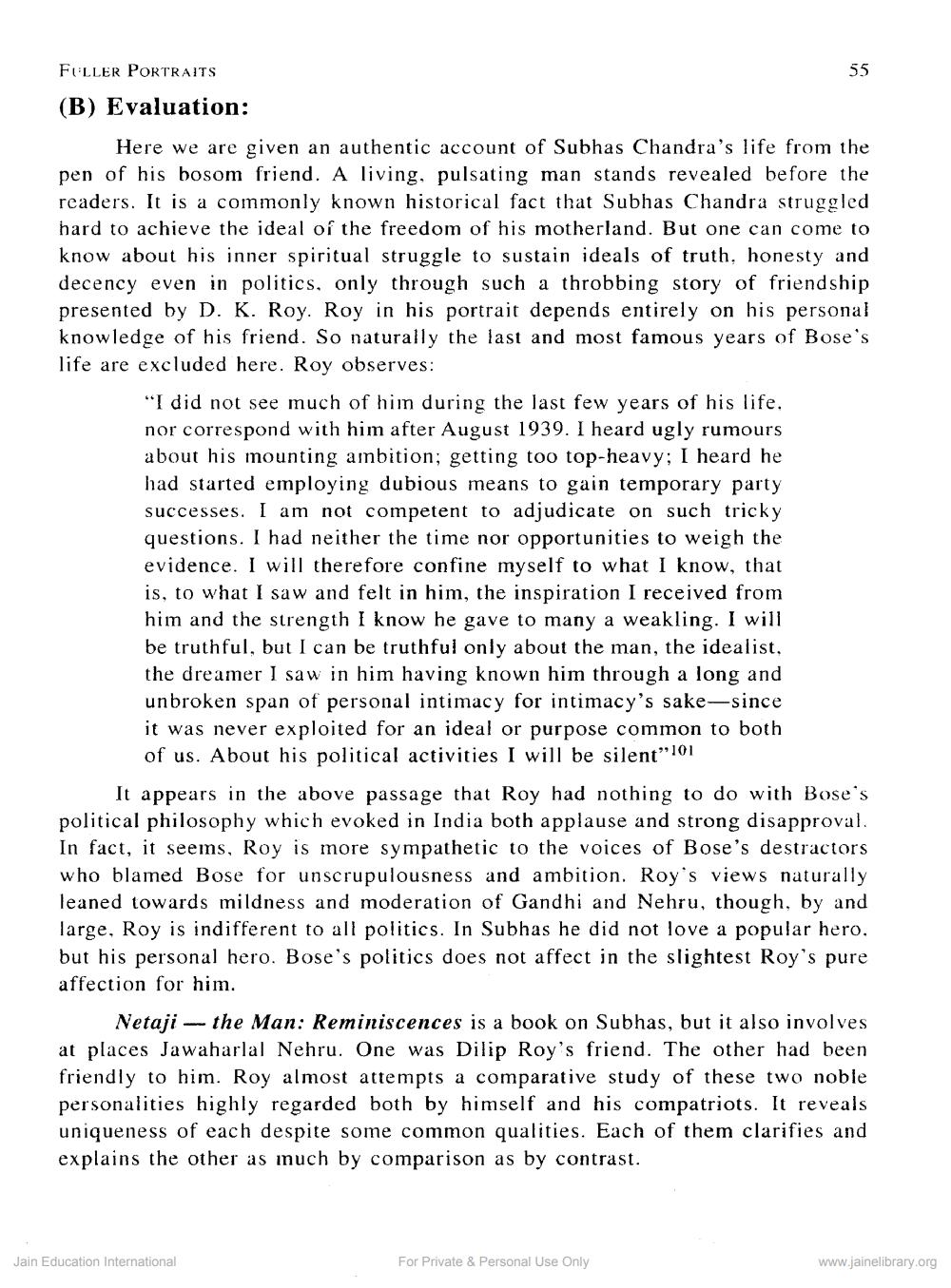________________
55
FULLER PORTRAITS (B) Evaluation:
Here we are given an authentic account of Subhas Chandra's life from the pen of his bosom friend. A living, pulsating man stands revealed before the readers. It is a commonly known historical fact that Subhas Chandra struggled hard to achieve the ideal of the freedom of his motherland. But one can come to know about his inner spiritual struggle to sustain ideals of truth, honesty and decency even in politics, only through such a throbbing story of friendship presented by D. K. Roy. Roy in his portrait depends entirely on his personal knowledge of his friend. So naturally the last and most famous years of Bose's life are excluded here. Roy observes:
"I did not see much of hin during the last few years of his life, nor correspond with him after August 1939. I heard ugly rumours about his mounting annbition, getting too top-heavy; I heard he had started employing dubious means to gain temporary party successes. I am not competent to adjudicate on such tricky questions. I had neither the time nor opportunities to weigh the evidence. I will therefore confine myself to what I know, that is, to what I saw and felt in him, the inspiration I received from him and the strength I know he gave to many a weakling. I will be truthful, but I can be truthful only about the man, the idealist, the dreamer I saw in him having known him through a long and unbroken span of personal intimacy for intimacy's sake-since it was never exploited for an ideal or purpose common to both
of us. About his political activities I will be silent"l01
It appears in the above passage that Roy had nothing to do with Bose's political philosophy which evoked in India both applause and strong disapproval. In fact, it seems, Roy is more sympathetic to the voices of Bose's destractors who blamed Bose for unscrupulousness and ambition. Roy's views naturally leaned towards mildness and moderation of Gandhi and Nehru, though, by and large, Roy is indifferent to all politics. In Subhas he did not love a popular hero. but his personal hero. Bose's politics does not affect in the slightest Roy's pure affection for him.
Netaji - the Man: Reminiscences is a book on Subhas, but it also involves at places Jawaharlal Nehru. One was Dilip Roy's friend. The other had been friendly to him. Roy almost attempts a comparative study of these two noble personalities highly regarded both by himself and his compatriots. It reveals uniqueness of each despite some common qualities. Each of them clarifies and explains the other as inuch by comparison as by contrast.
Jain Education International
For Private & Personal Use Only
www.jainelibrary.org




